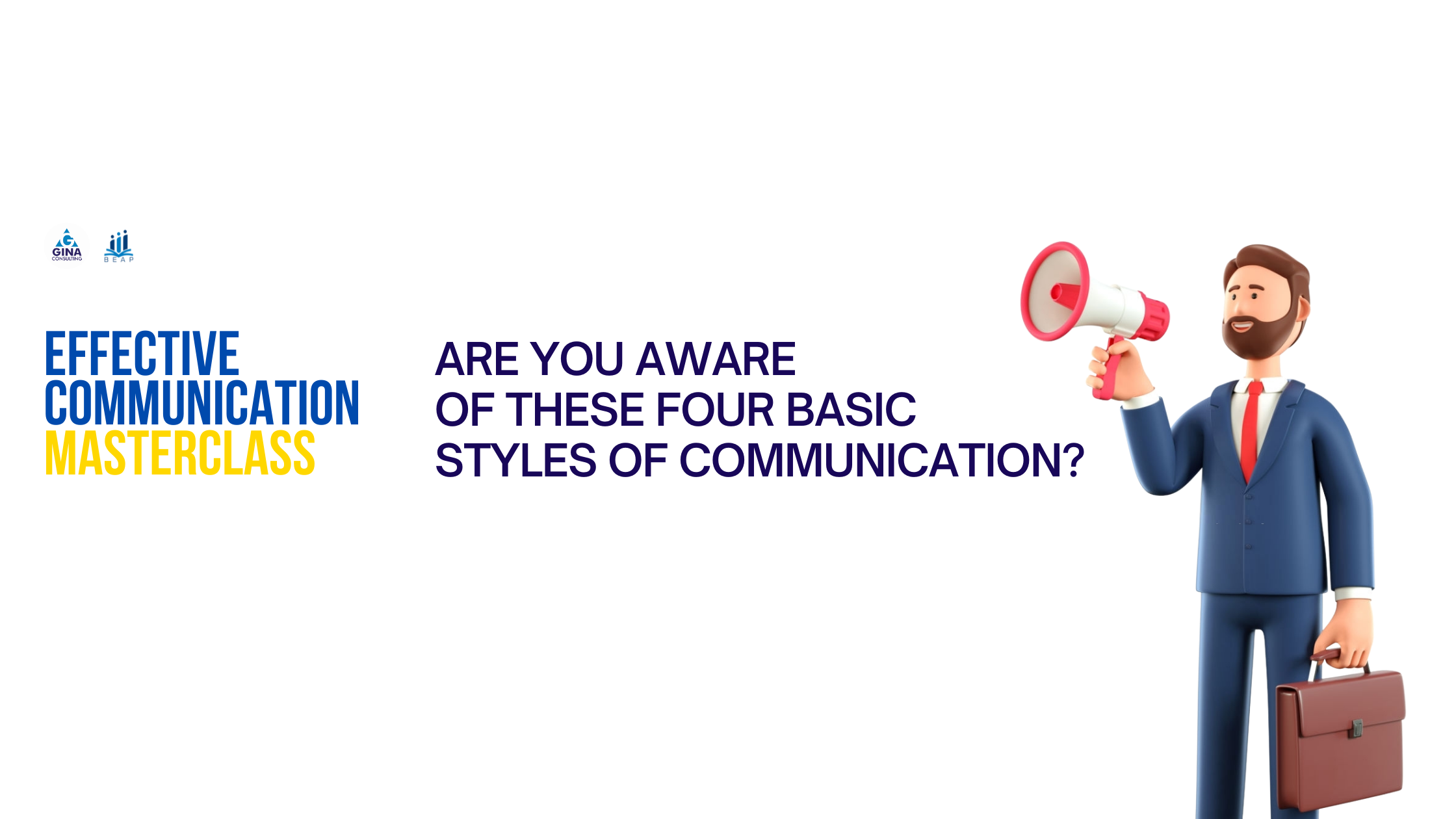From launching a unicorn to boosting employees’ morale, managers play critical roles in business success (and, of course, failure). Yet, being human, their approach to communication sometimes ends up on the extreme of styles — Aggressive. So, what do you do when you have a manager whose predominant communication style is aggressive? How do you effectively communicate with them? Should you flee at the slightest sight of aggressive behaviour? Or are there effective coping and management strategies that could be explored?
- To start with, ‘temet nosce’.
If you’re a fan of the Matrix, you’d easily remember that ‘temet nosce’ is a Latin phrase for “Know thyself”. There’s no better way to start learning how to communicate effectively with anyone, your manager inclusive, than to go on a self-awareness journey.
The journey starts with understanding the four communication styles and identifying your predominant style when communicating. The four are passive, passive-aggressive, aggressive and assertive.
As a passive communicator, you take the “I’m not okay; You’re okay” path. You do this by putting yourself in an inferior position; as such, you are not respecting yourself and are unwilling to make your ideas, thoughts, and concerns known while allowing others to express themselves. Sometimes, you do this because you do not want to be seen as pushy or disrespectful or because you do not believe your voice is valued, for instance, when speaking with a more senior person or attending a meeting. So, rather than explain to your manager how your workload would not permit you to get the report available by noon tomorrow, you inconvenience yourself and do overtime. All in the name of: “I don’t want trouble”.
If you’re a passive-aggressive communicator, you probably see yourself as an Oracle who takes delight in seeing things go wrong as you expected. Despite not actively communicating and taking any vital action to prevent such. You exalt the “I’m not okay; you’re not okay” approach aggressively in a passive manner— by not exploding verbally but ensuring that no one wins when you haven’t. For instance, in the scenario above, like the passive communicator, you would not explain. However, in this case, you also would not do overtime. Instead, you ensure the report is not ready or if it is, you do it so badly that it never meets your manager’s expectations, thereby frustrating your manager and denying any responsibility for doing so.
On the other hand, an aggressive communicator is like that senior of yours or fellow prefect in the boarding school that always tends to know best and most likely be the one to heat an argument and explode verbally. Such people always want to win the arguments, rarely back down even when wrong and constantly seek avenues to correct others and point out their mistakes. Hence, they tend to be judging, blaming, and rude. To them, winning the argument is all that matters, even if such comes at the expense of their relationship with others. Suffice it to say, if your boss is an aggressive communicator, you can’t afford to be one. Remember, you can never put out the fire with fire. Instead, always ask yourself: “Do I want to be in a relationship with this person, or do I want to be right?”.
Assertive communication is the peak that we should all commit to attaining. Assertive communicators understand and appreciate that everyone involved in any communication has rights and needs that must be respected. They understand the study led by Dr Mehrabian’s in the 1960s, which showed that 93 per cent of communication is “nonverbal” in nature. They use other components such as body language and tone of voice — body language is the largest to engage and connect with others. To them, nothing beats the “I am okay; you’re okay” approach with its endless possibilities. Albeit assertive communication won’t always give you what you want, it will always put you in a position for collaboration and optimism.
So, were you able to identify your predominant communication style from the four cited above?
- Do your homework.
In a dispensation where mediocrity seems to be on the rise, W. Edwards Deming’s “In God we trust. All others must bring data” cannot be overemphasised. Let’s face it; your manager has thousands, if not millions, of issues to deal with. Don’t add yours to the list. Before any communication, do your homework adequately. That will not only boost your confidence but will also reduce the tendency of your manager’s aggressive communication style being triggered due to your poor preparation.
- Show some empathy.
Perhaps by tomorrow, you’ll get superhumans— without emotions, as managers. But for now, remember that your managers are humans, just like you. Yes, your managers have fears and doubts, maybe some family issues, and many personal problems. Of course, no one expects you to be the fixer, but understanding that could elicit humility and kindness from you as you communicate with your aggressive managers. Sure, this is where we tell you to put yourself in their shoes before getting irked by their ‘aggression’. Practically, you must remember that every person is battling with their own demons. Whatever their actions or responses, pause and ask: “What could they be passing through?” because often, it really is not about you
- Listen actively.
While communicating with someone, have you ever had a feeling of not being listened to? If yes, how did you feel? Likewise, when we simply ‘hear’ people instead of actively listening to them, including your aggressive manager, they feel the same way, or even worse. Deliberately practising active listening is crucial to effectively communicating with your aggressive manager. Listen until they feel understood by observing:
- Reflective listening to confirm what you’re hearing. Use phrases like “You’re saying….”
- Active Listening: Simply pause without asking questions but using sentences in this direction: “Hold on please, – let me make sure I’m with you so far.”
So far, we’ve explored– one, the importance of knowing oneself vis-a-vis the four communications styles; two, the need to strive for excellence by doing one’s homework; three, the role of empathy and four, the relevance of practising active listening. Hence, we can say communicating effectively with everyone, not just an aggressive manager, is like a journey whose ultimate destination is “I’m Okay, You’re Okay” with immense kindness and a giving mindset. To move this topic further, do you think culture plays a role in how people communicate? Does culture impact people’s communication styles?



